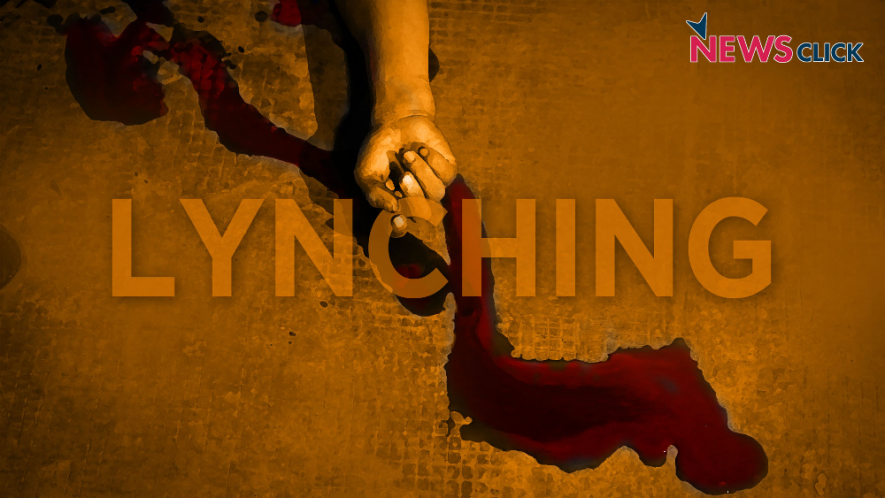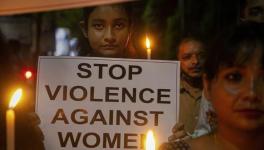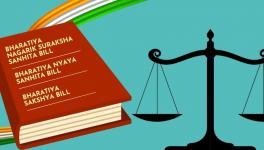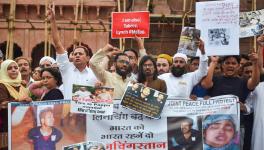Psychology of a Lynch Mob

The recent mob lynching of Tabrez Ansari at Jharkhand’s Dhatkidih village was the 14th lynching in the state and the 266th in the country in the past four years, according to data collated by Factchecker.in, a website that is tracking the horrendous trajectory of crimes based on religious hatred in India.
Most of the accused in the rising cases of mob violence have either been released on bail or never arrested at all. This is despite the Supreme Court’s severe injunction to the authorities to ensure justice. The questions which now arise are: Why are the laws of the land and legal system lynched every time? Isn’t there any fear of law? What makes a mob blood thirsty? What do the perpetrators think while committing such a heinous act?
Tabrez’s case has broken the myth that such heinous acts are committed by illiterate, jobless and misguided youth. The prime accused of this incident – Pappu Mandal – is a well-placed NIT (National Institute of Technology) graduate – who along with others thrashed the 22-year-old on suspicion of him being a thief, allegedly made him to chant ‘Jai Shri Ram’ and gave him ‘dhatura’ (a form of a poisonous leaf) when he asked for water. Tabrez later succumbed to his injuries in police custody.
Mandal’s Facebook timeline reveals that he is a member of the ruling Bharatiya Janata Party and hater of Mahatma Gandhi – who is considered to be the champion of non-violence. However, after his arrest along with 10 others, the police said that none of the accused has any political affiliation.
Also read: Jharkhand’s 14th Lynching in Four Years, Country’s 266th
NewsClick spoke to a psychiatrist, former police officers and social scientists to understand this phenomenon of mobocracy – which apparently has become a new normal in the past five years.
Psychology of a Mob
Explaining the psychology of a deadly mob, Aditi Kumar, a Delhi-based psychiatrist, said, “It all depends on the belief system we have. It is done by people who feel they have an authority to the extent that they can shun responsibilities. With this, the defence mechanism that ‘I am the representative of the entire community’ comes into play. It’s an idea that an individual is not killing another individual, but they are doing it on behalf of the entire community, which means to them that they are not alone in taking the life of a person.”
“Literacy does not account for knowledge and values. Hence, when we see the participants of mob lynching belonging to the so-called well-educated section of our society, our actual question should also be what is our education system focusing on? Is it just to get a sense of literacy through the thorough subject-designed course system or are we at any point bringing in holistic development of the individual? An individual, who is able to form his/her opinions, stays a part of the community through a rational existence and a sense of responsibility and not through blind faith following, which disregards him or her of any responsibility. An individual is a culmination of the family he or she is born into, the education they are given and the community they live in, one system going haywire can lead to the whole mechanism failing miserably,” she told NewsClick.
She feels – with regard to legislative powers – that the laws even if revised according to the need of the hour and society will go unnoticed if its implementation is not in place.
Increasing sense of impunity
“One of the basic reasons behind rising number of such hate crimes is impunity – a sense that we can do it and can get away with it as the government is with us. It is our government. This impunity also gives a feeling to perpetrators that these people (the victims) are in some ways either second class citizens or non-citizens; they are lynchable and killable; and neither the law nor the government can protect them from our (the perpetrators’) fury,” said Manisha Sethi, the author of Kafkaland: Law, Prejudice and Counterterrorism in India.
She further argued, “When a union minister garlands convicts of a lynching case, it gives the culprits a sense that they did something good. You were convicted and then given bail and then you have a union minister garlanding you. That will, of course, add to the sense of impunity and bravado.”
She was referring to the July 2018 controversy which had erupted after then Union Minister for Civil Aviation Jayant Sinha had honoured eight men convicted in the murder of Alimuddin Ansari – who was killed in a mob lynching in Jharkhand’s Ramgarh district in June 2017 – by garlanding them and offering them sweets when they had walked out of prison after securing bail from the Jharkhand High Court.
Also read: The Anatomy of Anger and Hatred in India
On being asked if these are organised or spontaneous incidents, Manisha – who is also is an associate professor at the Centre for Jawaharlal Nehru Studies, Jamia Millia Islamia, said no such crimes are spontaneous. “It may or may not be planned in some cases, but there is no sense of spontaneity to it either. It is true that people (who kill others) don’t know each other and nobody is targeting somebody specifically. It is not organised in that sense. But such mobs look for some people or the community, which are easy targets as nothing protects them. They (the mobsters) have the feeling that ‘we are the authentic citizens and those who are living here is at our mercy. We will decide who will live here and who won’t’,” she said, explaining the thought process of a lynch mob.
Mob Lynching: Reflection of State’s Failure
Vikram Singh, former director general of police, Uttar Pradesh, describes mob lynching a “slur” on the local government and a poor reflection of the efficacy of the local police. “There are miles to go in policing. A policeman is supposed to enforce rule of law without any bias. Those who are found negligent, should be dealt with regressive policing. Identify the accused, investigate them, get them tried in a fast-track court and ensure convictions. Those who are acquitted should be deeply analysed. It must be ascertained what led to their acquittals – whether it was because of shabby investigation, hostility of witnessed or poor prosecution,” he told NewsClick alleging that the sensitivity such cases require is not visible today in the forces across the country.
Superintendent of Police (SP), Deputy Inspector General (DIG), Inspector General (IG) and other high-ranking police officers – according to him – should keep track of the progress of investigation into such cases of mob violence and fix the accountability of the policemen who are found involved in shabby investigation, which generally leads to acquittals.
“What I found is that there are biased investigations. The history sheet of those who were let off by the court after the convictions should be analysed. Those officers who were involved in ensuring the acquittals and letting the witnesses turn hostile should be brought to book. But all this is not done. There should be zero tolerance. One committee should be formed to investigate such cases, and it should secure convictions by making a watertight case invoking all appropriate sections. If acquittal takes place, it should find out the lapses. Those who are found guilty should be acted upon so that it becomes a deterrent,” he added.
“The basic responsibility is to kill the killer instinct in the police and the government. If you want to send the perpetrators behind the bars for the crimes they have committed, you can do it as where there is a will, there is a way. Despite the Criminal Law Amendment Act, 2018, the Indian Penal Code (IPC) and the Code of Criminal Procedure (CrPC), the perpetrators of Nirbhaya are still far from gallows. Despite having so many laws, crimes against women have not decreased because the killer instinct in the system promotes shabby investigation, poor prosecution and in absence of day to day progress, witnesses are forced to turn hostile. You allow such incidents to happen. Your union minister garlands mob lynching convicts and other accused are draped in national flag, which is meant for martyrs and not criminals,” he said referring to Sinha – the MP from Jharkhand’s Hazaribagh constituency, and another instance when the accused of Akhlaq’s lynching case in Dadri who died in jail, was draped in tricolour.
Also watch: Is This BJP's Idea of Ram Rajya?
The problem lies – he concludes – with lower police officials and their leaders. “A message should be sent out that any kind of reluctance in probe will not be tolerated. The partisan attitude of the police are always witnessed when it comes to crimes against minorities. If a police man is partisan, he is not a police man. Everybody is equal in the eye of law,” he added.
Get the latest reports & analysis with people's perspective on Protests, movements & deep analytical videos, discussions of the current affairs in your Telegram app. Subscribe to NewsClick's Telegram channel & get Real-Time updates on stories, as they get published on our website.
























